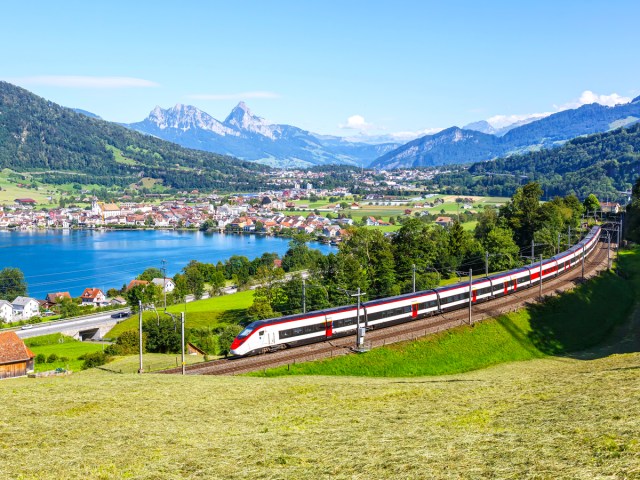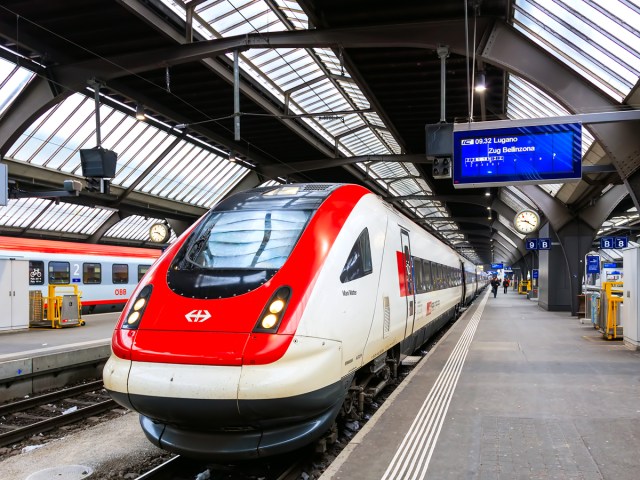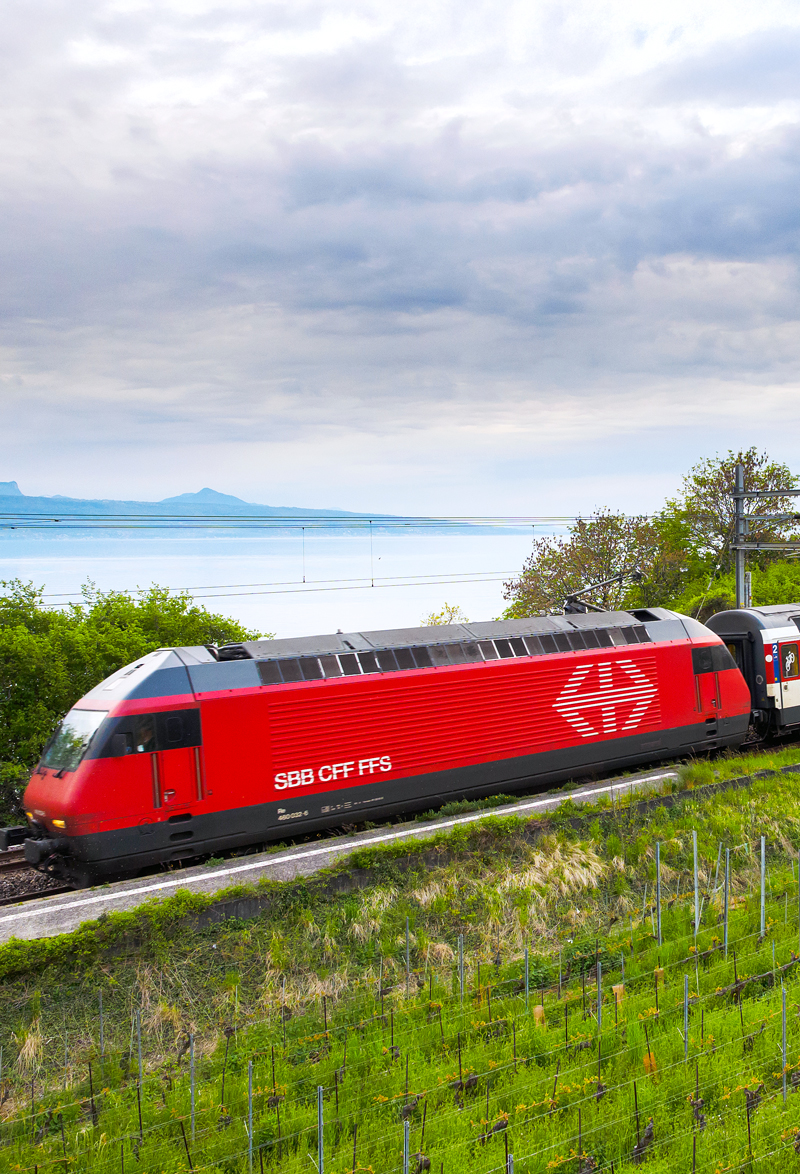Switzerland has dominated the watch industry for centuries, which is no accident: Their timepieces live up to their reputation just as surely as their trains do. There’s even a joke about Swiss punctuality. If a train scheduled to depart at 8:00 leaves when the station clock shows 8:05, either the train isn’t Swiss or the clock isn’t — it’s simply unrealistic that one or the other wouldn’t be entirely accurate. But how and why did this come to be? It has a lot to do with Swiss culture. Take a look below.
The Punctuality of Swiss Railways

Swiss Federal Railways (SBB) has been Switzerland’s national railway company since 1902. The company has earned a reputation for unmatched punctuality during its century-plus of business. But unlike some conventional wisdom, the idea that Swiss trains are always on time is based in reality.
SBB’s punctuality rate was 92.5% in 2023 and 93.2% in 2024, a new record for the company. (Compare that to Amtrak’s on-time rate, which averages less than 80%.) During both years, connection punctuality, which measures the percentage of passengers who make their train connections, was at an astounding 98.7%. Customer satisfaction with punctuality on arrival, meanwhile, stood at 87.6%.
Those stats are all the more impressive when you consider the Swiss rail network is one of the busiest in the world — in fact, the Swiss have the highest per-capita usage of trains of any country on Earth.
The 2017 European Railway Performance Index, which was based on three factors — intensity of use, quality of service, and safety — ranked Switzerland No. 1 on the continent, with a score of 7.2 out of 10. Next in the rankings were Denmark (6.8) and Finland (6.6). Zürich Hauptbahnhof, the country’s busiest train station, has also been ranked the most popular in Europe.
Cultural Roots

It isn’t just the trains that are punctual in Switzerland — it’s the people. The country officially known as the Swiss Confederation has been called “the nation that hates to be late.” It is a nation populated by people who derive “deep contentment” from being on time. The Swiss consider it a sign of respect and consideration; to be on time is to tell whomever you’re meeting that you value them and their time equally.
One theory suggests this has its roots in the country’s mountainous terrain, which made sustenance farming not only difficult but a matter of life and death: If you didn’t plant and harvest crops on time, you and your loved ones could perish.
This reputation for punctuality might have its drawbacks — Swiss coffee shops have a habit of being extremely busy at the exact same time every day, for instance — but few in Switzerland would argue that the benefits don’t massively outweigh these occasional quirks.
The Role of Technology

Cultural heritage isn’t enough to ensure a massive rail network covering thousands of miles is almost literally always on time, of course. And while it’s true that Switzerland’s small size makes efficiency easier — at 15,940 square miles, it’s about the same size as Vermont and New Hampshire combined — plenty of equally diminutive countries have highly inefficient rail networks.
According to the transport association LITRA, “the stability of the entire system depends heavily on the number, average speed, and heterogeneity of trains.” This means that the people making the timetables know exactly what their trains are capable of and, rather than allow for a sizable margin of error when listing arrival and departure times, make precise calculations that account for variables like rail traffic and inclement weather. The emphasis on punctuality starts at the top and carries through every level of the operation, including, of course, conductors themselves.
Switzerland isn’t the only country with a reputation for transportation timeliness, either. Japan’s trains run famously on schedule — so much so that in 2017, a Tokyo train company made headlines by apologizing to customers for a train running just 20 seconds late.
And on the rare occasion that your train in Japan is running more than five minutes behind schedule, you’ll be covered with a delay certificate (chien-shomeisho) which you can present to your employer as an official excuse for tardiness. The practice of issuing delay certificates is also common in Germany, another country which is known for keeping to a strict schedule.
Featured image credit: Enzojz/ iStock Editorial via Getty Images Plus
More from our network
Daily Passport is part of Optimism, which publishes content that uplifts, informs, and inspires.























